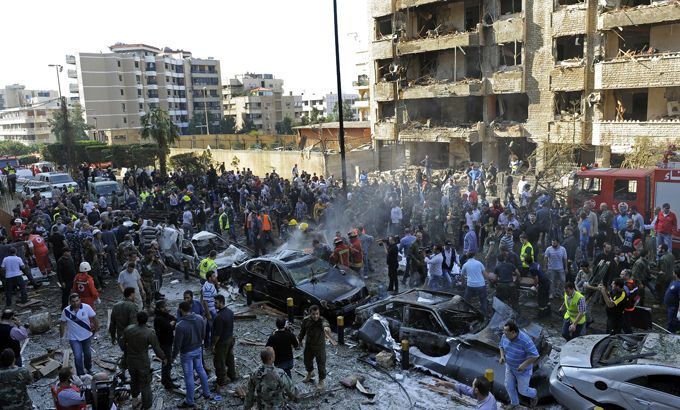
Has Syria’s war spilled over into Lebanon?
As bombs hit the Iranian embassy in Beirut, we discuss the regional dimensions of the ongoing Syrian conflict.
A Lebanese-based group linked to al-Qaeda in Iraq has claimed responsibility for what it described as a double suicide attack on the Iranian embassy in Beirut.
One reason why Iranians identify Israel is that Iranians do not want to make this sectarian ... They want people to believe that Israelis were behind it.
It is the latest in a series of bomb attacks linked to the two-and-a-half-year-old conflict in neighbouring Syria.
More than 20 people have been killed in the attack, which is, many say, more evidence of the regional dimension to the war in Syria and the sectarian edge to the conflict.
Fighters from Lebanon have travelled across the border to fight on both sides of the Syrian divide and they have attacked each other on Lebanese soil as well.
On one side there is Hezbollah, an Iranian-backed Shia group based in southern Lebanon. It is the most powerful single party in the Lebanese parliament and its allegiance is to Syria’s Bashar al-Assad.
Because of Hezbollah's involvement in Syria we have seen periodically these kinds of bombing attacks and it is a tit-for-tat situation.
On the other side are fighters from Lebanon’s Sunni groups, who have in the main been fighting alongside rebels inside Syria.
The Abdullah Azzam Brigades, that claimed responsibility for the Beirut attack were formed in 2009 as an offshoot of al-Qaeda in Iraq.
Tehran has, however, accused Israel of being behind the bombings. Iran’s foreign ministry has condemned the attacks as inhumane and says it is going to investigate the attacks and how anyone could get so close to the embassy and cause so much damage.
“Observers believe it was a clear message to the Iranian government and the latest spillover of the Syrian war …. People here are quite worried that we are going to see similar attacks in the days and weeks ahead especially since the Syrian government has made gains on the ground and the rebels are on the defensive,” says Al Jazeera’s Zeina Khodr, who is reporting from Beirut.
So, has the Syrian war spilled over into Lebanon? Who stands to gain from infighting in Lebanon and Syria? What is Hezbollah’s role in the Syrian war? And why has Iran named Israel behind the bombings?
Inside Story, with presenter David Foster, is joined by guests: Joseph Kechichian, a scholar, author and commentator, and journalist with the Gulf News; Mohammad Marandi, a political analyst and professor at Tehran University; and Jamal Ghosn, the managing editor of al-Akhbar online news.
|
“What has evolved over the past two-and-a-half years has led to a situation where there is a bit of military chaos in different parts of Syria, including the very strategic border region of Lebanon and Syria. That is where most of the involvement of Hezbollah has been and it is merely its strategic depth it is protecting because it has been targeted there.” Jamal Ghosn, the managing editor of al-Akhbar online news. |